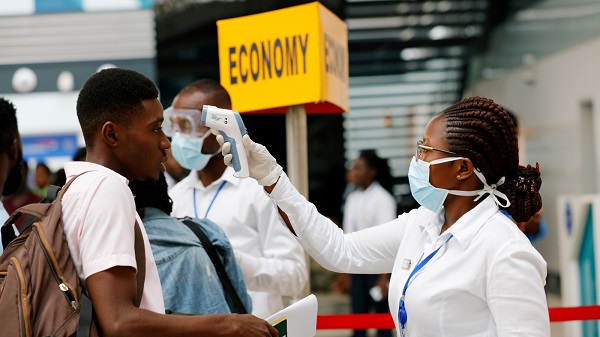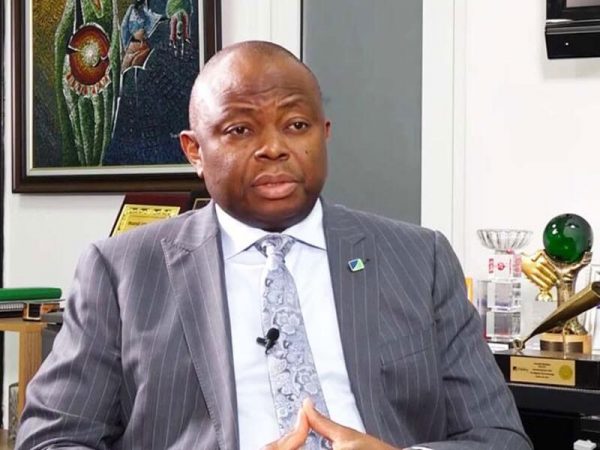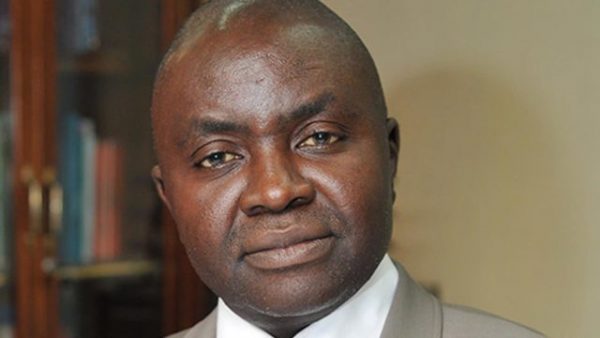Travellers Ditch Summer Travel Over Multiple Tests, 100% Hike In Airfares
 • Multiple PCR tests, quarantine, restrictions frustrate holidaymakers
• Multiple PCR tests, quarantine, restrictions frustrate holidaymakers
• Foreign airlines jostle for Lagos, Abuja market without promotional tickets
• Blame weak naira, rate of exchange, high operating costs, says Bernard
• Experts explore tourism destinations within Nigeria, Africa
For the second year running, there would be no summer travel for most international holidaymakers in Nigeria this season, including the rich that can afford it.
While airfares have spiked by at least 100 per cent on traditional tourism destination routes, a rash of safety protocols and quarantine readily frustrate leisure travels and getaways.
Experts who blamed the low patronage on COVID-19 disruption, said travel demands are looking up globally but for the weak Naira-to-Dollar exchange rate that has pushed fares beyond the reach of most regular Nigerian travellers.
Also, given the challenge of going to Europe and North America on leisure, local travel operators are exploring holiday destinations within the country and the African continent. The European Union (EU) has already issued its EU Digital COVID Certificate otherwise known as Vaccine Passports in 17 countries, beginning from July 1.
On the international travel and tourism calendar, the summer period between June-ending and September is often the busiest and high revenue spinner for airlines and tourism countries, as holidaymakers crisscross the globe to have fun.
Coronavirus and safety precautions made the ritual impossible last year. With the world in pandemic isolation, the global travel and tourism industry lost an estimated $4.5 trillion revenue in 2020. Rebound is expected this year as countries are opening up to the vaccinated. Though legacy carriers are in a last-minute push for high traffic routes like Lagos and Abuja, Nigerian travellers are not having a feel of the season yet, especially from the booking perspective.
The Guardian’s check of booking platforms of major airlines, at the weekend, found several available seats, which is unusual for weeks preluding the summer peak period. Similarly, fares have doubled on traditional high-frequency routes.
A Lagos-London-Lagos Economy Class ticket that sold for an average of N200,000 at pre-COVID-19, and N350,000 early this year, now sells for between N480,000 to N650,000 depending on the airline of choice. The Business Class ticket was as at weekend sold for between N2.6 million to N3 million, compared to N1.2 million to N1.5 million previously offered.
Lagos-Atlanta-Lagos Economy ticket that formerly sold for an average of N260,000, now offers for between N600,000 to N850,000 depending on the airline of choice and where the booking takes place. Business Class on the U.S. route sells for between N3.2 million to N3.6 million per traveller.
Abuja-based systems engineer, Hameed Aliero, recently cancelled the yearly summer travel for his family of seven. “Regrettably, we are going nowhere this year too. We will remain in self-isolation,” he said with humour.
“More seriously, it is a tough decision for me and my children knowing that we didn’t travel last year. But when you get a bill of about N10 million just to see Europe for three weeks, with high vacation rates, and other family friends alike cancelling such trips, what else can a father do than to just appeal to his bored globetrotters to bear with another coronavirus season,” Aliero said. Travel expert at Dart Logistics Limited, Yinka Ladipo, said there are many customers like Aliero that are discouraged by the hike in airfares. Ladipo said the rates did not include the cost of mandatory COVID-19 tests that travellers have to take at every point of the trip.
For instance, a single trip overseas requires four sessions of polymerase chain reaction (PCR) tests. At the rate of N50,000 per test in Lagos, a traveller will spend an additional N200,000 on a single trip. In addition, some countries, like Canada, that demand a mandatory quarantine protocol for arriving passengers have also pushed the cost of such services to the concerned passenger.
Ladipo, who is also the Publicity Secretary of National Association of Nigerian Travel Agencies (NANTA), said the heavy cost elements on each traveller have reduced demand to essential travels alone. He said except for study, medical, family and business-related travels that are now coming up, demands on leisure travel are rare despite the summer season.
“Though demand has slightly improved compared to near-zero we had this time in 2020, but outside of the essential travels, nobody is travelling for leisure this period. Unlike before (pre-COVID-19) when all the Economy seats would have been taken by May, now the seats are there, though expensive and even more expensive given the rate of exchange.
“Besides, the (low) load factor of the airlines and the economic outlook has shot prices up. The airlines are all struggling, yet the cost of operation is not coming down. All of these have cost implications for travellers.
“The rigour of taking the coronavirus tests is also a huge factor. In this part of the world, very few people have been vaccinated, so there is heavy demand for tests and other measures. When you add about N200,000 to an average fare of N500,000 to Europe, it is really not the type of venture anyone would like to embark on when the travel is not essential,” Ladipo said.
As at the last count, at least seven major international carriers are jostling for a pie of the Nigerian market. The airlines – Emirates, Qatar Airways, Lufthansa, Delta, British Airways, Virgin Atlantic and KLM — some of which are making a return to Nigerian routes since the year began, have lined up multiple frequencies in and out of Lagos, Abuja and Port Harcourt, beginning from July 12. However, missing in their marketing are the popular promotional fares that airlines’ often deploy to woo intending passengers.
Notwithstanding, Chief Executive Officer of Finchglow Travels, Bankole Bernard, told The Guardian that demand for overseas travel has climbed to about 50 per cent (of pre-COVID-19), as die-hard travellers and the very rich brave the odds to have travel experience.
Bernard said there are customers that couldn’t bear another year without the usual summer travel despite the hike in fares and travel restrictions in some countries. He said the major constraint was the Naira-to-Dollar Rate of Exchange (RoE).
Findings showed that though a Dollar now exchanges for N503 on the black market rate, the RoE quoted by airlines and the Global Distribution Systems (GDSs), which erstwhile aligned with the official rate, are now fleetingly higher than the black-market peg.
Bernard, who is also the Chairman of the Airline Passenger Joint Committee of the International Air Transport Association (IATA), explained that everything in aviation, including aircraft, spare parts, crew training and fares, are quoted in dollars.
“So, where your weak Naira is chasing a strong currency like the Dollar, everything is bound to be very expensive. And when foreign airlines raise their fares, it is citizens that will suffer it, especially where there is no national carrier and authorities still don’t understand the importance of aviation to the economy.
“As of 2019, the dollar was N360, today, it is N500. You can forget the CBN’s exchange rate of N410/$1 because you can never get it. So, airlines are not selling at that rate because they are not buying at the official rate. Interbank rate may be selling at N460 to N470/$1. So, airlines will increase the fares a little to be able to accommodate the RoE. It is really because of the weak Naira that fares have gone up, not because ticket rates increased.”
He added that it is unfortunate that the government was yet to understand how the downstream of aviation works, to warrant the right intervention and priority of air travel as one of the mainstays of the economy.
“Travel is no longer a luxury, but a necessity. How do you grow tourism and Foreign Direct Investment without volumes of air travellers, and without other citizens coming into your country? That is why countries like the United Arab Emirates (UAE) prioritise aviation and are itching to have flights return to Nigeria. The global traffic is on the increase, whether Nigeria is ready or not,” Bernard said.
Indeed, Bernard’s thoughts align with IATA’s recent projection that the world is getting more eager to travel in the short and long term. Already, Europe and more than 20 countries have wholly or partially lifted travel restrictions for vaccine passport holders ahead of the summer travels.
IATA’s projection showed that the 2021 global passenger numbers are expected to recover to 52 per cent of pre-COVID-19 levels (2019). In 2022, global passenger numbers are expected to recover to 88 per cent of pre-COVID-19 levels, and 105 per cent by 2023.
But to get there, the clearing house for global airlines has urged governments to bear the cost of testing to avert an increase in air fares.
IATA noted that the impact of the costs of COVID-19 testing on family travel would be even more severe. Based on average ticket prices of $200 for domestic travel and average low-end PCR testing ($90) twice each way, a journey for four that would have cost $1,600 pre-COVID, could nearly double to $3,040—with $1440 being testing costs.
IATA’s Director-General, Willie Walsh, said as travel restrictions are lifted in domestic markets, airlines were seeing strong demand and expected the same in international markets.
“But that could be perilously compromised by testing costs – particularly PCR testing. Raising the cost of any product will significantly stifle demand. The impact will be greatest for short-haul trips (up to 1,100 km), with average fares of $105, the tests will cost more than the flight. That’s not what you want to propose to travellers as we emerge from this crisis. Testing costs must be better managed. That’s critical if governments want to save tourism and transport jobs; avoid limiting travel freedoms to the wealthy,” Walsh said.
Travel consultant, Sunday Olumegbon, said one of the positives of the COVID-19 episode is the imperative of discovering new tourists’ sites outside of Europe and America. Olumegbo said attraction sites within would have been the best for Nigerian travellers, but for worsening insecurity nationwide.
“The alternative, which I preach to customers, is within Africa. There are beautiful sites in Kenya, Tanzania and South Africa. There are also places to explore within West Africa. They may not be as glamourous as those of Paris and Dubai, but they offer good value for money and at affordable rates,” Olumegbon added.







